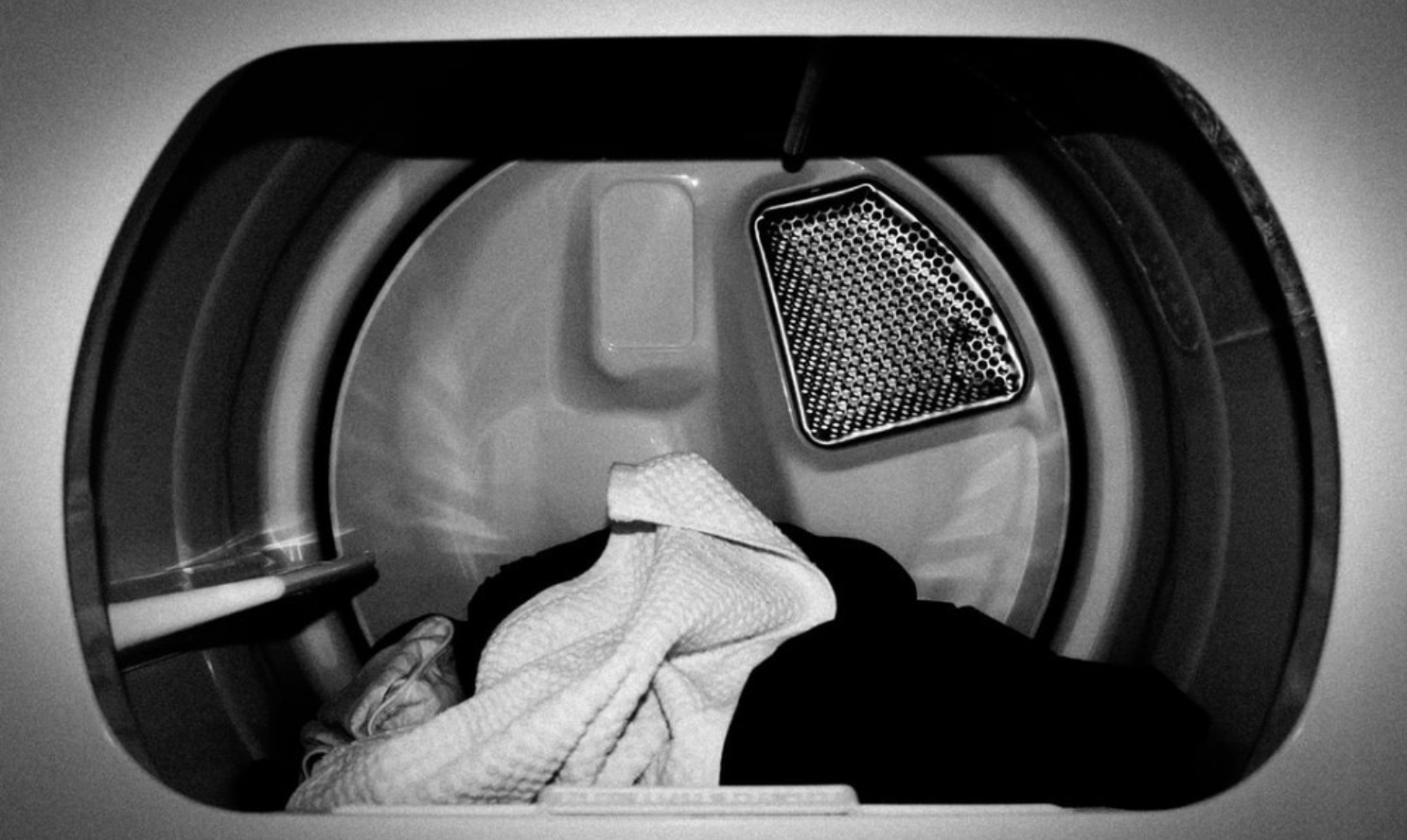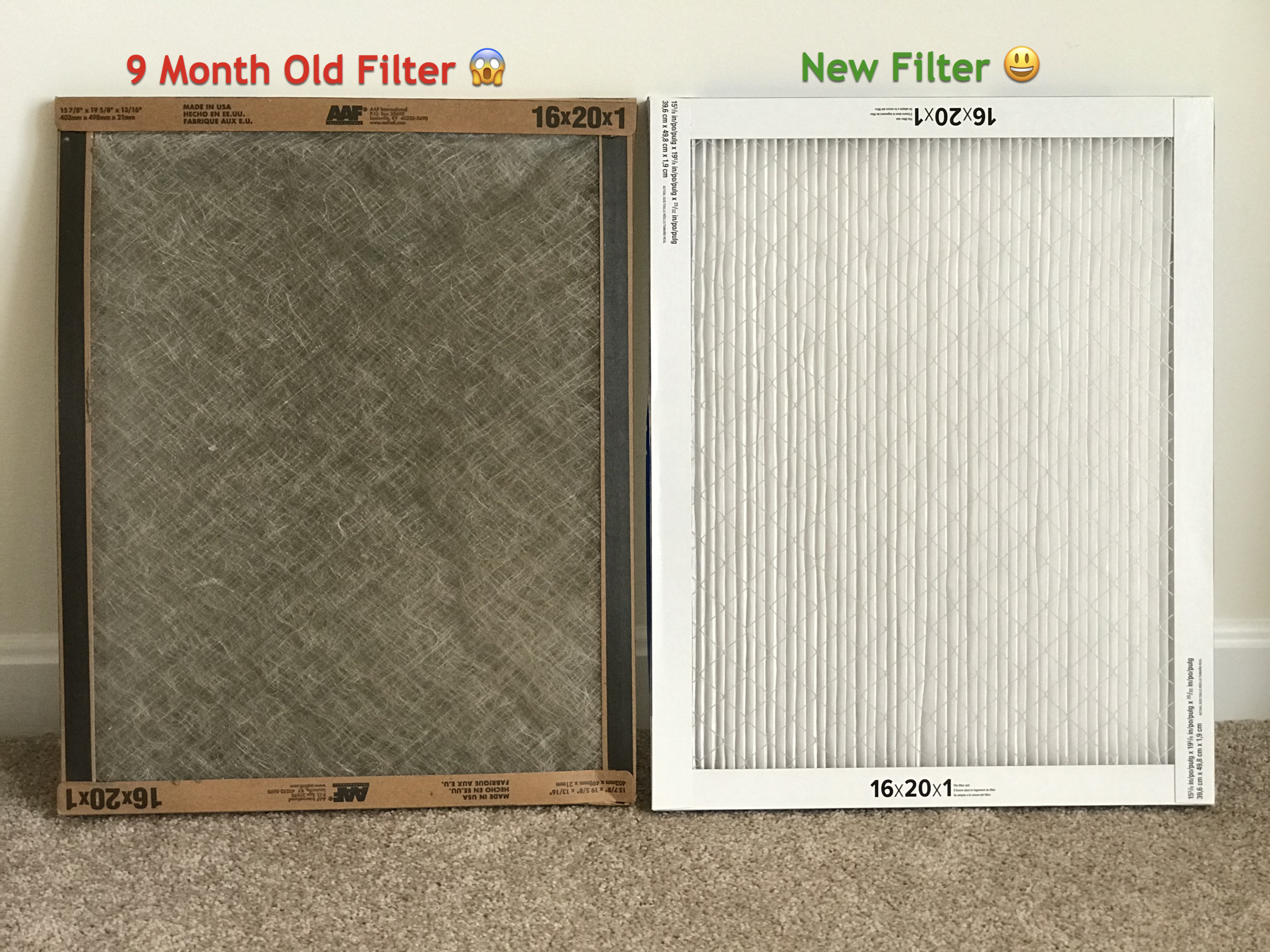Registering new appliances may seem pointless to some, but it has its benefits. Manufacturers often ask for too much personal information when registering their appliances, and some buyers are rightly concerned.
You don’t need to register new appliances for warranty rights. Proof of purchase (i.e., a receipt) is all you need for warranty claims. However, registering your appliances has other benefits, such as additional proof of ownership and more accurate warranty coverage. Also, registering new appliances will provide better customer service, as you will be informed about possible product recalls.
My wife and I recently purchased a new house in Lewes, Delaware, and it came with new General Electric (GE) appliances, refrigerator, stove, dishwasher, and microwave.
As with many areas of our house, the first question I had was about maintenance. How do I make sure these products work well and last long? An example is the need to clean out the dryer vent.
We all know that new products have some manufacturing warranties. I have always heard that you should register new products, but I really don’t know why.
Registering these products with GE seems to be the right thing to do, but I’d like to know more about the topic. I have researched the subject and have found benefits and some concerns about product registration.
Do you Have to Register Your Appliance for Warranty Coverage?
One persistent myth about warranties needs to be debunked: “registration is needed for a warranty to be valid.”
This is not true.
There is federal law protection for this in the USA. An interpretation of Magnuson-Moss warranty act, Use of warranty registration cards, states that “A requirement that the consumer return a warranty registration card or a similar notice as a condition of performance under a full warranty is […] unreasonable […]”
Thus providing proof of purchase should be sufficient to receive warranty protection for a product.
Reputable companies, such as GE understand this and disclose this fact on the online registration form. Note the disclosure at the bottom of the form I need to complete to register my GE products: “Important: failure to complete and submit this form does not diminish your warranty rights“
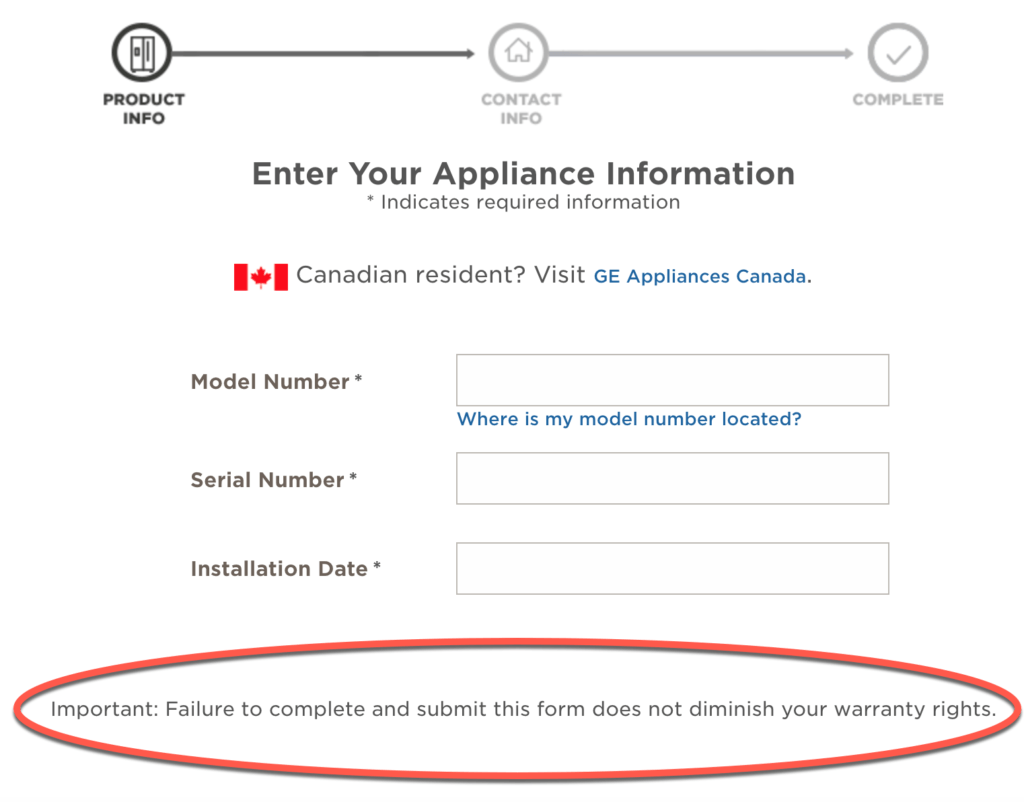
What is the Start Date of Your Warranty?
The answer to this question is not as easy as you may think.
This is what GE says on its website about when an appliance warranty begins. GE is the manufacturer of my appliances; other manufacturers may have different practices.
An appliance warranty begins with the date of purchase. The sales invoice, letter from the builder, or other proof of occupancy validates the purchase date. When proof of purchase or ownership is not available, the manufacturing date of the appliance will be used to determine the age of the appliance and warranty period of an appliance.

That is, without proof of purchase, if you bought an item that was manufactured 6 months ago, and has 24 months warranty, you will get only 18 months of warranty coverage.
This may seem unfair, but it’s not because the manufacturer doesn’t know when you purchase the product. The manufacturing date for GE is the default date. The burden is on the buyer to provide proof of the date of purchase.
You can do this by showing a receipt or by registering your appliance. Since I bought the house with the appliances included, it looks like I can use a letter from the builder or proof of occupancy if needed.
I don’t know about you, but I’m not good at keeping receipts. If my last resort to proof ownership was a receipt, I would definitely register the appliance to ensure that even if you lose the receipt, the warranty period is accurate.
As an example of how important this is. Below is a picture of our new microwave, which I considered it installed as of our house closing date (April 17, 2020). If I didn’t enter this date on our registration page, GE would go with the manufacturing date (September 2019.)
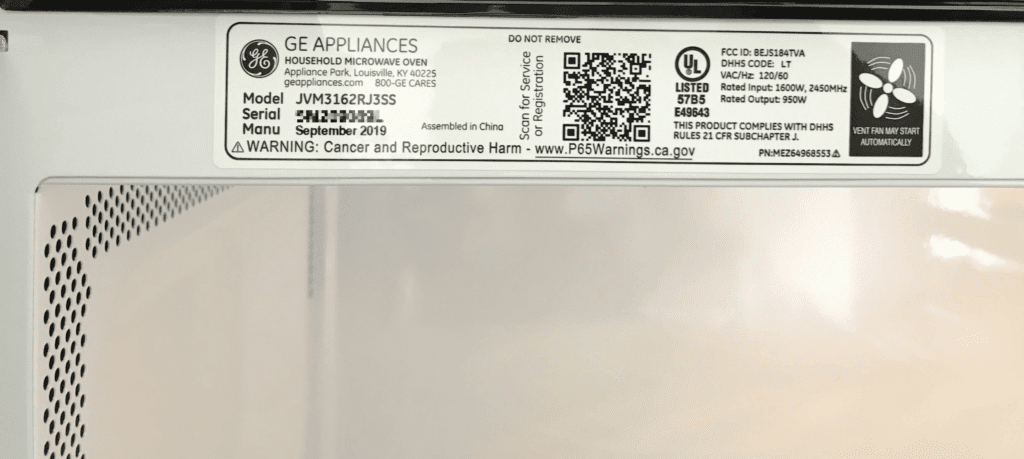
Improved Customer Service
When you register your appliance, you provide contact information to the manufacturer. Every year, thousands of products are recalled because of various issues, and one of the items you own may be among them.
By registering your appliance you will get more efficient customer service. If there is something wrong with your product, you will likely be informed right away about what you need to fix the issue.
This especially important with powerful electric appliances, if faulty, may cause injuries and fires. Registering your appliances will lower the risk as you will be informed about any possible problems as soon as they are discovered. You will also be able to share your experience to help others.
Access to Product Manuals and Replacement Parts
An additional bonus of registering your products is to gain quick access to product manuals and replacement parts when you need them. You can also schedule services directly online and track the history of repairs in a central place. Having all the information in a central location is especially important when you own several devices from the same company, like us.
I can only speak of my GE registration, but I think this is typical for most online registrations. Below is an example of the GE page of our newly registered refrigerator.
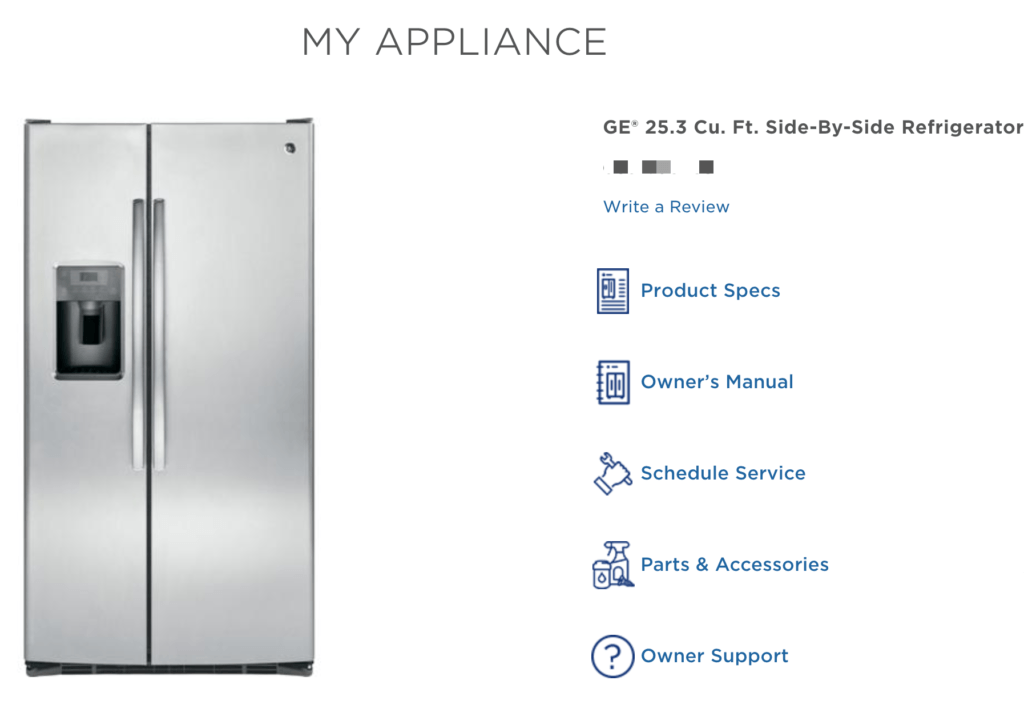
Confirmation of Ownership

Registering your appliances may serve as additional proof of ownership for insurance purposes. If your house gets damaged in a fire, and you lose all the original receipts or warranty cards. In that scenario, product registration may be the only way to claim money from insurance for lost appliances. The same goes if those appliances are stolen or lost/damaged in any other way.
Small appliances, such as toasters or coffee makers, may not be worth the hassle, but big appliances, such as refrigerators, stoves, and dishwashers, are worth considering.
Registration Process
Most manufacturers offer an easy registration process, usually on their websites.
For example, to register my GE products, I have to create an online account with GE and provide my name, address, phone number, email address, and my products’ model number, serial number, and purchase date. This seems reasonable information for registration.
However, some companies may request additional information as part of the registration process. The Privacy Rights Clearinghouse, a non-profit organization, has noted that you should not be required to provide demographics and lifestyle information to register a product.
The customer base built by manufacturers also serves as a marketing platform for them. Some people dislike this practice, and they are not willing to participate in any marketing phone calls and do not want to get any marketing emails. Others are brand-loyal and appreciate the information about new deals.
Major Appliance Companies Registration Pages
This is a list of links to the registration pages of major appliance companies. If you own appliances, chances are one of these companies is the manufacturer. You can use the link to register your appliances.
- General Electric
- Samsung
- Whirlpool
- Bosch
- Frigidaire
- LG
- Siemens
- KitchenAid
- Maytag
- Sub-Zero
- Electrolux
- Amana
- Kenmore
- Jenn-Air
Closing Thoughts
After this research, I am convinced that I am better off registering my GE appliance even though I don’t need to do it to support warranty rights. As long as I don’t divulge demographic and other types of personal information, the pros of registering my appliances cleary outway the cons.
Video Summary
I have created a quick video to highlight some of the pros and cons. If you like this video, consider subscribing to the House Notebook Youtube Channel.
Related Posts:



